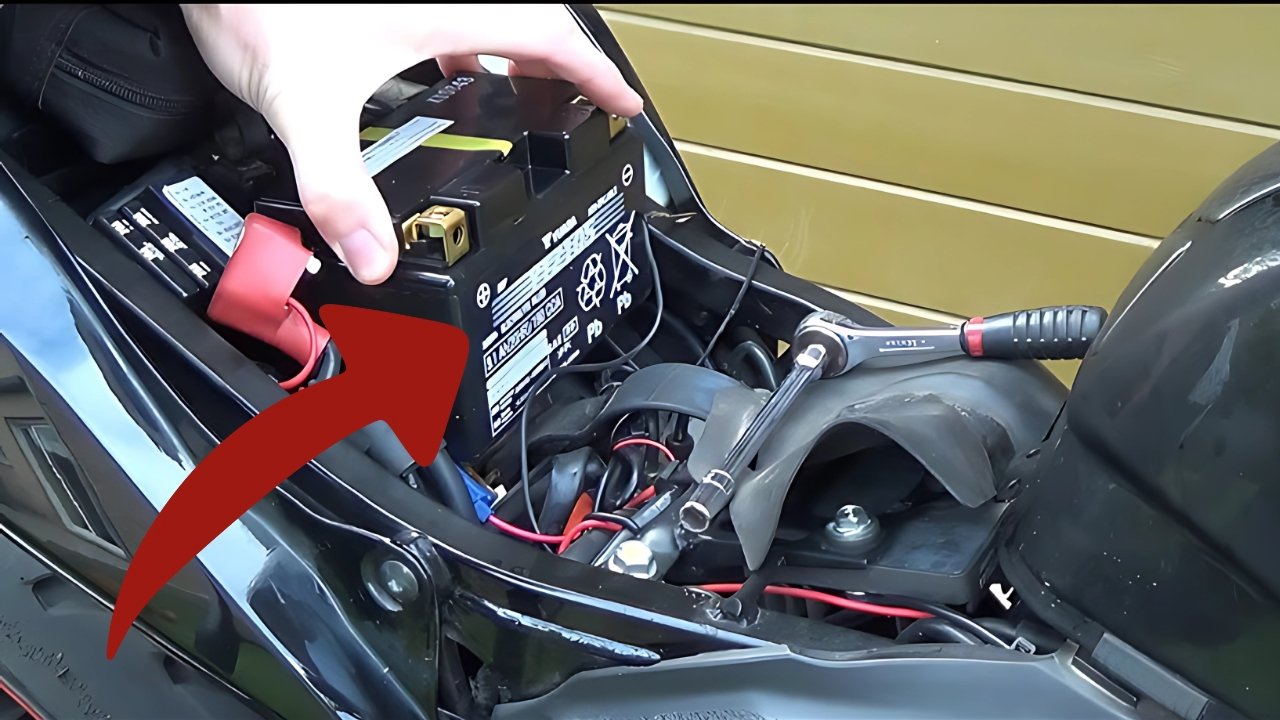Top 7 Warning Signs Your Motorcycle Battery Needs Replacement: There’s nothing more frustrating than gearing up for a ride only to find your motorcycle refusing to start. Whether you’re a daily commuter, a weekend explorer, or an occasional rider, a failing bike battery can instantly throw a wrench into your plans. Just like any other component, motorcycle batteries have a limited lifespan—and recognizing the signs of battery trouble early can save you from unexpected breakdowns.
So, how do you know when it’s time to replace your two-wheeler’s battery? Let’s break it down with seven common signs that indicate your motorcycle battery may be on its last leg—and what to do about it.
Contents
- 0.1 1. Sluggish Engine Start
- 0.2 2. Dimming Headlights and Flickering Electronics
- 0.3 3. Corroded Battery Terminals
- 0.4 4. Old Battery Age
- 0.5 5. Slow or Inconsistent Charging
- 0.6 6. Swollen or Leaking Battery Case
- 0.7 7. Frequent Need for Jump Starts
- 1 Choosing the Right Replacement Battery for Your Motorcycle
- 2 Final Thoughts – Don’t Let a Dead Battery Kill the Joy of Riding
1. Sluggish Engine Start
One of the earliest and most obvious signs of a dying battery is a slow engine crank. If your bike’s engine hesitates or takes longer than usual to turn over when you press the start button, your battery might be struggling to provide the necessary power. This sluggish performance is often the first red flag that your battery’s health is deteriorating.
Quick Fix Tip:
Try giving your motorcycle a jump start. If it runs normally afterward but the same issue reappears the next day, it’s a strong indicator that your battery is no longer holding charge efficiently. Consider replacing it before it leaves you stranded.
2. Dimming Headlights and Flickering Electronics
Your motorcycle battery powers more than just the ignition—it fuels the lighting system and dashboard electronics as well. If you notice dim headlights, flickering instrument panels, or malfunctioning indicators, it’s likely your battery is weakening.
Dim or inconsistent lighting isn’t just annoying—it’s dangerous, especially during night rides or poor weather conditions. When your battery can’t supply steady voltage, your visibility and safety take a hit. Don’t ignore these warning lights; they may be telling you it’s time for a new battery.
Pro Tip:
For consistent performance, consider investing in a reliable, maintenance-free battery like TATA Green Batteries, engineered to support stable electrical output across all components.
3. Corroded Battery Terminals
Take a close look at your battery terminals. Do you see white or greenish deposits around them? That’s corrosion—and it’s a clear indicator that your battery is aging. Corrosion can block the battery’s connection to your motorcycle’s electrical system, reducing efficiency or preventing startup altogether.
While cleaning with a baking soda solution and wire brush might help temporarily, recurring corrosion is a sign of a deeper problem. Excess corrosion can even damage your bike’s wiring or cause electrical shorts.
Maintenance Tip:
Clean terminals regularly and inspect for recurring corrosion. If it returns frequently, it’s a good idea to replace the battery with a high-performance unit designed for durability.
4. Old Battery Age
Even if your bike battery isn’t showing dramatic symptoms, age matters. Typically, motorcycle batteries last between 3 to 4 years. Beyond this, internal wear and chemical aging reduce their effectiveness—even if they seem to be working fine.
If your battery is older than three years, it’s smart to start monitoring its performance closely. Regularly check the voltage with a multimeter and look for early signs of failure, especially if you’re planning a long road trip.
Long-Ride Reminder:
For adventure seekers and tourers, a dependable battery is a must. Choose a battery that is known for longevity and performance under demanding conditions, such as TATA Green Batteries.
5. Slow or Inconsistent Charging
Is your battery taking longer to charge or losing power quickly even after a full charge? That’s a serious red flag. A motorcycle battery that doesn’t hold charge efficiently can result in unexpected stalls, ignition issues, and poor performance overall.
This issue may be due to internal sulfation or loss of electrolyte, both of which are signs of aging. Over time, batteries lose their ability to hold energy, even if your motorcycle’s charging system is functioning properly.
Solution:
If you notice frequent charging issues, stop relying on temporary fixes and invest in a battery replacement.
6. Swollen or Leaking Battery Case
Visual inspection of your battery can reveal serious warning signs. If you notice that the battery casing appears bloated, swollen, or is leaking fluid, it’s not just a sign of failure—it’s a safety hazard. Overcharging, overheating, or internal damage can cause deformation and leakage, making the battery unstable and unreliable.
Safety Alert:
Swelling or fluid leakage warrants immediate replacement. Continuing to use a damaged battery could lead to electrical failure or, in extreme cases, a fire hazard. Get it replaced with a certified battery suitable for your bike model.
7. Frequent Need for Jump Starts
If you’re jump-starting your motorcycle more often than not, your battery is likely no longer capable of maintaining its charge. While jump-starting can be a temporary solution in emergencies, relying on it regularly signals that your battery is failing.
Eventually, jump-starts stop being effective altogether. Once your battery reaches this stage, it’s only a matter of time before it dies completely.
Rule of Thumb:
If you find yourself jump-starting your bike more than once a week, stop delaying—replace the battery to avoid being stuck mid-ride.
Choosing the Right Replacement Battery for Your Motorcycle
Once you’ve identified that your battery needs replacing, it’s essential to choose one that aligns with your riding style and motorcycle specifications. Here’s what to keep in mind when shopping for a new battery:
- Go Maintenance-Free:
Modern maintenance-free batteries are sealed, spill-proof, and require zero water top-ups. Perfect for those who want a hassle-free experience with consistent performance. - Choose High-Performance:
If you’re a long-distance rider or love off-road adventures, consider high-performance batteries that offer higher cranking power and better durability. - Look for Durability:
Pick a battery designed to endure various climates, terrains, and heavy usage—especially if you ride frequently in extreme weather or on rough roads.
Recommended Brand:
For trusted reliability, TATA Green Batteries is a rider-favorite. Known for long life, consistent output, and minimal maintenance, these batteries are engineered for real-world riding conditions and offer peace of mind on every journey.
Final Thoughts – Don’t Let a Dead Battery Kill the Joy of Riding
Your motorcycle’s battery may be small, but it plays a massive role in keeping your two-wheeler running smoothly. Ignoring the warning signs of a weak or failing battery can leave you stranded at the worst possible moment. Regular checks, proper maintenance, and timely replacement can save you from that dreaded non-start.
Whether you’re commuting through city traffic or heading out on a highway adventure, ensure your battery is always up to the task. Don’t wait for a total breakdown to act—upgrade to a dependable battery like TATA Green Batteries and keep your rides smooth, safe, and stress-free.




